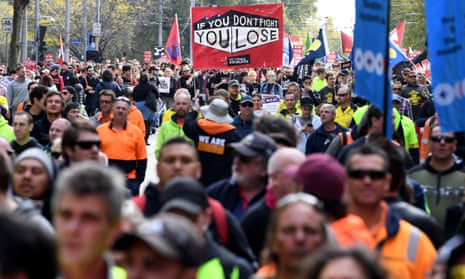“The voice for freedom.”
That’s how the Institute for Public Affairs – the pro-business group pushing to sell off the ABC – describes itself. In particular, the IPA campaigns, it tells us, for “freedom of speech”.
But what, precisely, does that mean?
You can trace the emergence of the concept back to ancient Greece: think of Socrates drinking hemlock rather than giving up his teaching.
But today’s usage derives more directly from the great struggles against autocracy in the early modern period.
The British parliament obtained “freedom of speech” when the English civil war and the Glorious Revolution culminated in the Bill of Rights of 1689.
A century later, the French Revolution produced “The Declaration of the Rights of the Man and of the Citizen of 1789”, with its promise in Article XI that “the free communication of thoughts and of opinions is one of the most precious rights of man: any citizen thus may speak, write, print freely”.
When the American colonists defeated King George III, they drew on the French experience, including, in the first amendment to their constitution, a prohibition on the legislature impinging on freedom of speech or the freedom of the press.
In all three instances, free speech derived, directly or indirectly, from uprisings against the wealthy and the privileged – the kind of people that the IPA and its friends in the Liberal party now represent.
Those early documents defined freedom as something won against the state, with radicals championing the people against the censorship enforced by traditional monarchs.
The emerging capitalist class, however, found it could adopt the slogans of liberty to its own ends. For capitalists, the freedom won by the revolutions in France and America meant, first and foremost, a right to conduct their own business without interference by others.
That’s what the IPA defends today, in an argument that uses “freedom” as a weapon against free expression.
Let’s look at a concrete example.
Say, for instance, you wanted to speak out against Australian foreign policy and the “war on terror”. What obstacles would you face?
You might (particularly if you were Muslim) worry about coming to the attention of Asio or a similar agency, given the rafts of security legislation passed since 2001 mandating draconian penalties for those judged to be supporting “terrorism”.
More likely, however, you’d find yourself confronted not by the power of the state but by the power of capital, in the form of a media industry with one of the highest concentrations of ownership anywhere in the world.
Put simply, the avenues for public expression in Australia are controlled by a tiny number of people.
Famously, in early 2003, Rupert Murdoch publicly declared that George Bush was “acting very morally, very correctly” by invading Iraq – and shortly thereafter all 175 of his newspapers editorialised in favour of the war. More generally, as Robert Manne says, Murdoch “has discovered how to use the 70% of the national and statewide press he owns to ensure that the values drawn from his rightwing political philosophy remain dominant within the political mainstream”.
Now, from the IPA’s perspective, that’s free speech. If Murdoch owns hundreds of newspapers, he, as proprietor, has the right to make them print whatever he wants.
But from the perspective of anyone other than pro-capitalist ideologues, the control exerted by a single billionaire over a nation’s public sphere looks less like freedom and more like its opposite.
Let’s take a second example.
Say you decide to escape from the tyranny of old-school newspaper barons by taking your anti-war message to Facebook.
Unfortunately, as Business Insider’s Jack Smith explains, Facebook isn’t a “free, open marketplace of information”. Rather, it’s a “walled garden” that can disclose “as much or as little as it wants about its decision-making process”.
Again, for rightwing libertarians, if Mark Zuckerberg and his cronies decide to close your page down, that’s not oppression but freedom.
Facebook’s neither a charity nor a public service. It’s a private business – and therefore, the argument goes, its owners should be entitled to do whatever they want. Sure, that might mean that you’re effectively silenced. But, hey, there’s no censorship, since you have the perfect right to start your own billion-dollar social media empire.
For a third instance, let’s assume that your Facebook post doesn’t vanish.
Maybe it even garners some attention. Maybe it goes viral, bringing your cogent anti-war arguments to millions of people. Maybe one of those people is your employer, who doesn’t want her company associated with a suddenly notorious peacenik.
Maybe you suddenly find yourself without a job.
In that example, we can see the contradiction in the early-modern notion of free speech, a contradiction that allows rightwingers to turn the slogan against the rest of us.
As we’ve said, 18th-century capitalists defined freedom as their right to buy and sell commodities without interference from the state.
But, in a modern economy, the most important of those commodities is labour power, since the vast majority of us sell our ability to work in return for a wage. And, when the capitalist buys our labour power, she exercises her right to put it to work – that is, to direct us as she sees fit.
Her freedom thus comes into immediate conflict with our freedom.
On the one hand, you possess free speech. On the other, she’s entitled to sack if you don’t delete your inflammatory Facebook update at once.
In 2015, for instance, the SBS sports writer Scott McIntyre tweeted his opinion about Anzac Day, decrying what he called the “cultification” of an “imperialist invasion”. The post came to the attention of the usual perpetually outraged culture warriors, who demanded that SBS take action, with the then communications minister Malcolm Turnbull personally contacting the broadcaster’s managing director.
In due course, McIntyre lost his job.
Afterwards, the human rights commissioner Tim Wilson, an IPA alumni and supposed free speech champion, spoke out, not to defend McIntyre but to endorse his sacking.
“Before [McIntyre] worked for SBS,” Wilson explained on the ABC, “he had his free speech and was able to express these views … When he was at SBS, he voluntarily entered into a contract about the standard of conduct they accepted and they’ve simply said, ‘You breached that standard and therefore we’re no longer going to employ you.’”
The passage provides a perfect illustration of how the IPA’s version of free speech works. It’s a doctrine of freedom for corporations and subservience for people.
For most of us, freedom of speech isn’t simply a matter of getting the state off our backs, as important as that can be.
An Oxfam study estimates that the richest 42 people in the world hold the same wealth as the 3.7 billion poorest. Does anyone really think that, amid that polarisation, we all have equal opportunities to make our voices heard?
In the current climate of casualisation, short-term contracts and permanent insecurity, most people are acutely conscious that their employers monitor what they say on social media and elsewhere.
Without strong unions, without decent working conditions, without the kind of organisations that might provide a platform for unpopular opinions, our freedom of expression comes a distant second to the rich’s freedom to silence us.
That’s why free speech, in any meaningful sense, is an industrial issue.
It’s a matter of campaigning not just against state interference but for economic power. In that struggle, organisations like the IPA stand fundamentally on the wrong side.
- Jeff Sparrow is a Guardian Australia columnist

